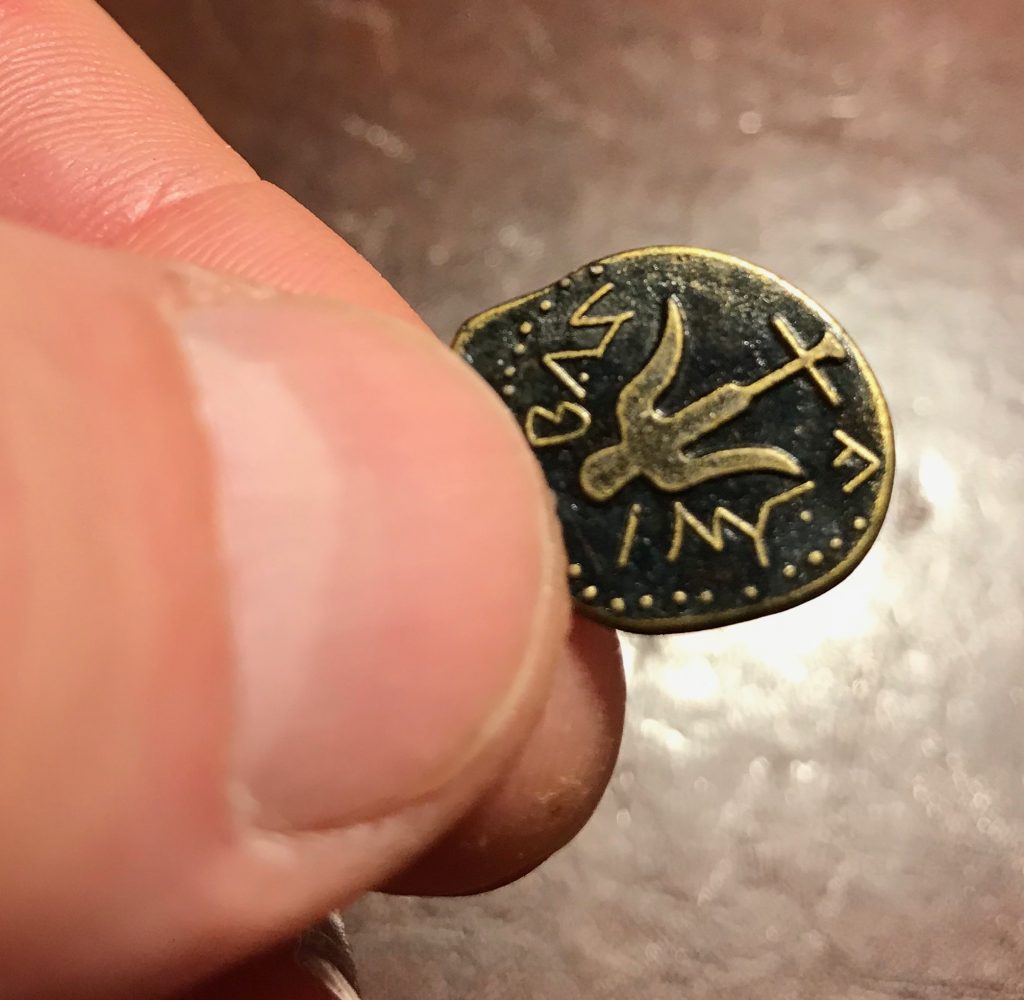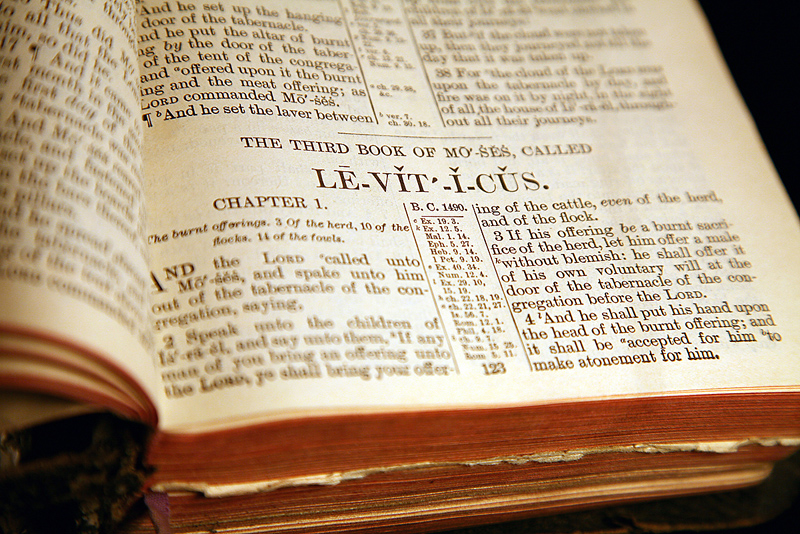Exodus 23:14–19, Three times you shall keep a feast. The Scriptures teach us that during the three biblical pilgrimage festivals of Passover/Unleavened Bread, Pentecost and Tabernacles all the individuals of the nation are to leave their place of individual isolation and are to rendezvous in the presence of the one Elohim of Israel. This was to occur in the festival circle (or chag) around the common sanctuary (where YHVH has chosen to place his name, Deut 16:2, 11, 15), thereby becoming conscious that each one is connected to all the other members of the nation, with YHVH Elohim, and with the Torah (The Pentateuch—Deuteronomy, p. 310, by S. R. Hirsch). In biblical times, the Israelites would gather wherever the tabernacle had been placed. When the temple was built in Jerusalem, this city became the destination point for the Israelite pilgrims during these three biblical feasts. For the saints who celebrate the biblical feasts now, there is no temple in Jerusalem to gather around. The saints are now the spiritual temple of the Spirit of Elohim (1 Cor 3:16). Moreover, Yeshua has promised to be in the midst of his people when they gather together (Matt 18:20). In light of these spiritual realities, YHVH’s people need to pray and seek his facer where he wants them to gather for his feasts, and then obey him in faith believing that he will be with them.
But there is much more to this spiritual picture if we add Yeshua the Messiah of Israel into the picture, for each of the three feasts point directly to him. Passover and the Feast of Unleavened Bread, the Feast of Weeks or Pentecost, and the Feast of Tabernacles all point to Yeshua, since the first two festal periods point to Yeshua’s first coming, while the last fall feast points to his second coming. Each of these feasts represent milestones in the spiritual journey of the redeemed believer from initial redemption to glorification and eternal life in the presence of YHVH Elohim.
The three feasts also spiritually represent the three sections in the Tabernacle of Moses (Heb. mishkan). These are the outer courtyard, the holy place and the holy of holies. These three sections of the tabernacle correspond with the three parts of man, which are his body, soul and spirit (1 Thess 5:23). The feasts of Passover (Heb. Pesach) and Unleavened Bread (Heb. Chag haMatzot) are the first two feasts the righteous believers are to celebrate in the spring and represent the first steps in a new believer’s spiritual walk. This corresponds with the outer courtyard and relates more to the spiritual cleansing of the outer parts or body of man. It is here that one begins their spiritual walk and relationship with Yeshua, who is the Word of Elohim. The Feast of Weeks or Pentecost (Heb. Shavuot) is the next step one takes in their spiritual walk as one goes into the tabernacle of Moses. The tabernacle’s holy place speaks of one bringing one’s soul (the mind, will and emotions) into submission to the will of YHVH as one advances in their spiritual walk and grows in the fruits and gifts of the Spirit of Elohim. This readies the redeemed Israelites to move into a place of worship and praise before the Almighty.
Finally, the holy of holies corresponds to the Feast of Tabernacles (Heb. Chag haSukkot) and the spirit part of man. This section of the tabernacle points to man’s ultimate spiritual relationship with Elohim. It is here that man relates to Elohim, who is a Spirit, on a deeper spirit to Spirit level (John 4:24; 1 Cor 2:10–13). This prophetically points to man’s ultimate destiny as glorified beings in the New Jerusalem as adopted members into the family of Elohim (John 1:12; Rom 8:14–15, 23; 9:4; 2 Cor 6:18; Gal 4:5–6; Eph 1:5; 1 John 3:1; Rev 21:7).
Exodus 23:17, Three times in the year. Three times a year at the three pilgrimage feasts—the Feast of Unleavened Bread, Feast of Weeks (Pentecost) and Feast of Tabernacles—Elohim commands that all men appear before him at the place where he has chosen to place his name (Deut 16:2, 6, 11, 15, 16). At these three times, Israelites would gather wherever the tabernacle or temple of Elohim was located to celebrate before Elohim with their fellow Israelites. The Torah repeats this command in Deuteronomy 16:6–17.
On these three occasions, YHVH commands that all males bring with them a feast offering—they were not to appear before YHVH empty-handed, but they were to bring an offering as they were able according to how YHVH had blessed them (Deut 16:16). This was not a tithe, but a freewill offering in addition to their regular tithes. Through Malachi the prophet, YHVH accuses backslid Israel of robbing him by not giving to him their tithes and offerings (or contributions). Because of this negligence, Elohim declares that Israel has been cursed with a curse,whereupon he promises to reverse the curse, rebuke the devourer that has destroyed their prosperity, to open the windows of heaven over them so that the will not be able to contain the prosperity of YHVH (Mal 3:8–12).
Some people may insist that this offering no longer applies to those who are “under the new covenant.” However, Yeshua declares that not one jot or tittle of the Torah has been annulled (Matt 5:18), and those who follow the Torah will be blessed (Matt 5:19). Although, we may not be able now to fulfill all aspects of YHVH feasts laws, YHVH expects us to love him and to keep all of his commandments the best we can (John 14:14; 1 John 2:3–6). To not obey his Torah-commands is sin (1 John 3:4), and on judgment day, Yeshua promises to reject those who were Torahless (workers of iniquity), despite their professed religiosity (Matt 7:21–23).
Giving financially to those who are doing the ministry of Yeshua is a spiritual principle that is immutable, universal and is part of the walk of the righteous redeemed (Prov 3:9–10; Phil 4:14–17; 1 Tim 5:17–18; 1 Cor 9:13–14; Gal 6:6).
By the way, to the several of you that are fed spiritually by this ministry and who thus show your appreciation by giving financially to it, we offer a heartfelt thank you! May YHVH bless you mightily and supply all your needs according to his abundant riches in Yeshua the Messiah!




